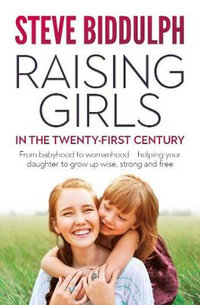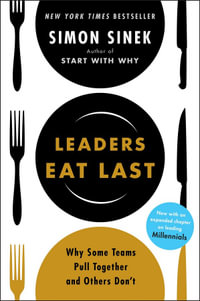"
The Internet Is Not the Answer is the most compelling, persuasive, and passionately negative thing I've yet read on this topic. It offers a scary picture of how the ultra-libertarian superstars of Silicon Valley are leading us inexorably into a future with the sort of social inequalities not seen in the West since the early days of the Industrial Revolution."
Kazuo Ishiguro, New Statesman (Books of the Year)
"The Internet Is Not the Answer claims that the only real best friend today's tech titans have is money, and until policymakers intervene, or until the 'digital elite' adopt a more altruistic posture, the Internet will remain a winner-take-all marketplace that's widening a yawning gulf between society's haves and have-nots. . . . The Internet Is Not the Answer supports its convincing narrative with startling numbers and research cataloged over roughly forty pages worth of endnotes." --San Francisco Chronicle on
"Page after page of really interesting insight and research. I look forward to the much-needed debate about the problems that Keen articulates--which can't be lightly dismissed." --Larry Sanger, cofounder, Wikipedia and founder, Citizendium on The Cult of the Amateur
"Thoroughly engaging, brightly written pages" --Chicago Tribuneon The Cult of the Amateur
"How to Fix the Future, by longtime tech critic Andrew Keen, avoids simplistic condemnations, offering instead a progressive plan to ease the growing discomfort with emerging technologies that only a few years ago were being celebrated. The book provides compelling examples of ongoing experiments addressing new ways of developing and integrating socially responsible technology into our lives, especially in media, government, and education . . . Keen genuinely believes that, yes, we can fix the future." Washington Post
"In [Keen's] acerbic, articulate global survey of human-centered solutions, he examines best practice in consumer choice, education, innovation, regulation and social responsibility . . . An invigorating mix of principle and vision." Natureon How to Fix the Future
"Ambitious . . . How to Fix the Future is a truly important book and the most significant work so far in an emerging body of literature in which technology's smartest thinkers are raising alarm bells about the state of the Internet, and laying groundwork for how to fix it." Fortune
"Eschewing much of the over-the-top luddism that now fills the New York Times, the Guardian, and other mainstream media outlets, Keen proffers practical solutions to a wide range of tech-related woes." TechCrunch
"Despite the kinder, gentler approach, Keen fans and there are many needn't despair. In the name of a newfound positivity, the British-American entrepreneur and writer hasn't sacrificed his demon edge . . . Similar to his other works, Keen rejects the notion that these problems can be fixed by the tech giants themselves . . . Instead he calls for a cultural and political awakening, mainly in tech-obsessed America, where public servants are expected to fight these concentrations of power, rather than cater to them." Charles Turner, WikiTribune
"After years of giddiness about the wonders of technology, a new realization is dawning: the future is broken. Andrew Keen was among the first and most insightful to see it. The combination of the digital revolution, global hyperconnectivity, and economic dysfunction has led to a populist backlash and destruction of civil discourse. In this bracing book, Keen offers tools for righting our societies and principles to guide us in the future." Walter Isaacson, New York Times-bestselling author of Steve Jobs and Leonardo Da Vinci
"In this engaging, provocative book, [Keen] outlines five strategies regulation, competitive innovation, consumer choice, civic responsibility, and education that, working in collaboration, can help ensure an open, decentralized digital future . . . Valuable insights on preserving our humanity in a digital world." Kirkus Reviews (starred review)
"Keen, who has spent his career warning of the dangers of the Internet, takes a more positive turn in this complex yet accessible study. Comparing our current situation to the Industrial Revolution, he stresses the importance of keeping humanity at the center of technology." Booklist
"Keen has delivered an enormously useful primer for those of us concerned that online life isn't as shiny as our digital avatars would like us to believe." -
-Washington Post on
The Internet Is Not the Answer























